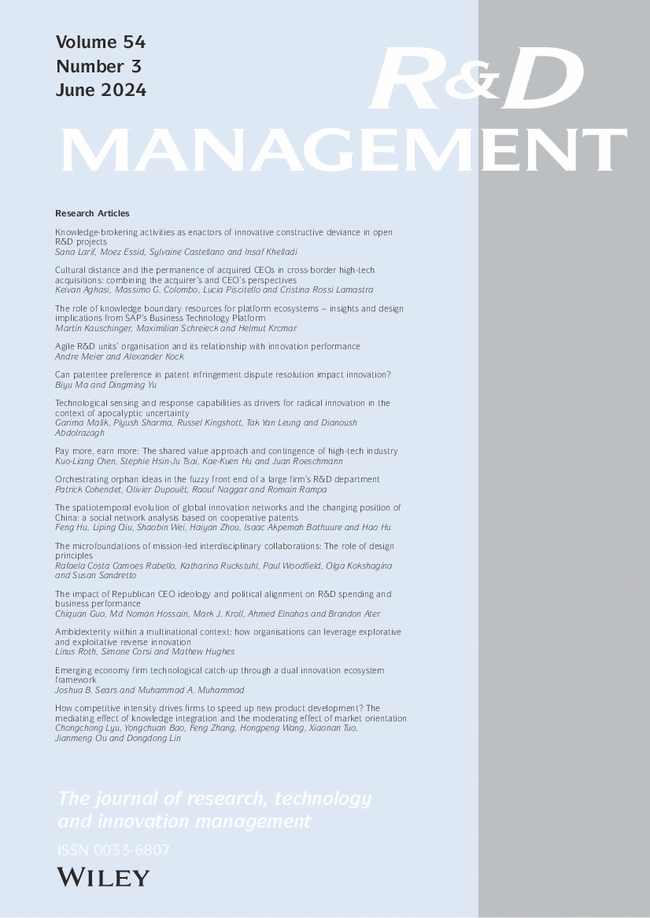从循环经济角度管理已获专利的 "循环创新
IF 5.7
2区 管理学
Q1 BUSINESS
引用次数: 0
摘要
本研究的主要目的是分析与循环经济原则相关的创新(定义为 "循环创新")是否与环境信息披露密切相关,是否有助于改善环境绩效。文章还旨在检验,作为循环创新的一个具体指标,废弃物专利是否因其新颖性、复杂性和激进性高于其他绿色或传统创新,而成为需要特定战略管理的更有价值的资产。实证分析使用了 2011-2015 年间全球企业的丰富企业级数据集,共 1330 个观测值,结果表明环境信息披露和环境绩效与循环创新呈正相关。事实上,这种创新在专利申请和专利引用方面更为密集,表明其对公司具有更高的经济价值。这篇文章为界定循环创新这一新的研究方向做出了贡献,并从利益相关者的角度提供了与循环商业模式相关的一些环境决定因素和后果。本文章由计算机程序翻译,如有差异,请以英文原文为准。
Management of patented ‘circular innovation’ in view of the circular economy
This study mainly aims to analyse whether innovation related to the circular economy's principles, defined as ‘circular innovation’, is closely linked to environmental disclosure and contributes to the generation of improvements in environmental performance. The article also aims to test whether waste patents, as a specific indicator of circular innovation, are more valuable assets that need specific strategic management due to their level of novelty, complexity, and radicalness being higher than other green or conventional innovations. The empirical analysis uses a rich firm‐level dataset of worldwide companies for the 2011–2015 period, with 1330 observations to show that environmental disclosure and environmental performance are positively associated with circular innovation. This innovation is in fact, more intensive in patent claims and patent citation generation, indicating a higher economic value for companies. The article contributes to this new line of inquiry on defining circular innovation, as well as providing some environmental determinants and consequences from the stakeholders' perspective in relation to circular business models.
求助全文
通过发布文献求助,成功后即可免费获取论文全文。
去求助
来源期刊

R&D Management
Multiple-
CiteScore
11.30
自引率
9.50%
发文量
0
期刊介绍:
R&D Management journal publishes articles which address the interests of both practising managers and academic researchers in research and development and innovation management. Covering the full range of topics in research, development, design and innovation, and related strategic and human resource issues - from exploratory science to commercial exploitation - articles also examine social, economic and environmental implications.
 求助内容:
求助内容: 应助结果提醒方式:
应助结果提醒方式:


